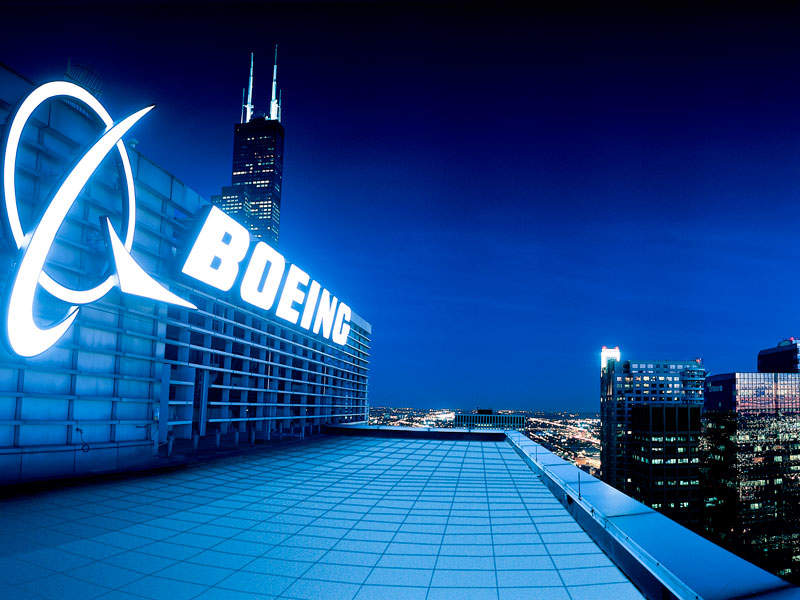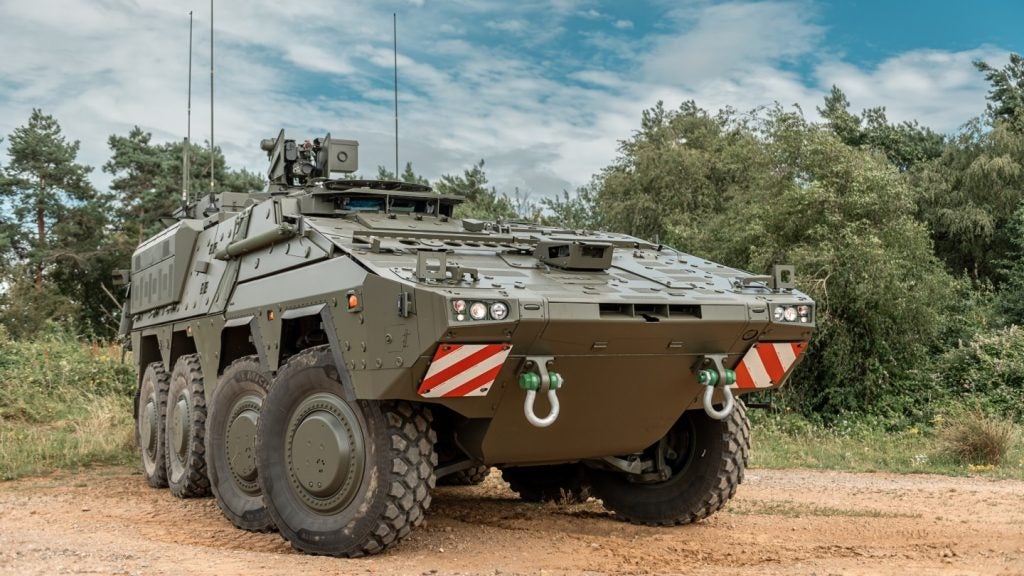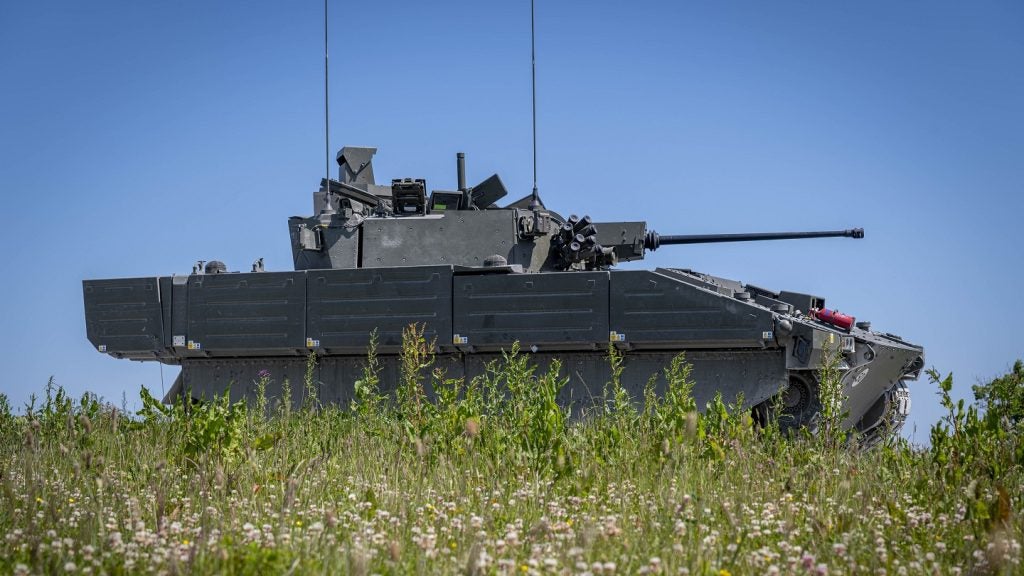
Top Aerospace and Defense Companies: A Global Look
The Boeing Company – $93.39bn
The Boeing Company generated an annual revenue of $93.39bn in 2017, primarily driven by its aerospace and defence businesses, while its net earnings for the year stood at $8.19bn. The company topped the industry after delivering a total of 763 commercial aircraft for the sixth consecutive year.
The Boeing Company manufactures commercial jet and military aircraft, defence products, and space and security systems. Headquartered in Chicago, Illinois, the company employs approximately 140,000 people and serves customers in 150 countries.
The company operates through four major segments, including Defence, Space & Security, Commercial Airplanes, Global Services, and Boeing Capital. Some of the company’s defence products are EA-18G Growler, P-8 Poseidon, F/A-18 Hornet, CH-47 Chinook, F-15 Strike Eagle, and KC-46A Tanker.
With new net orders worth $110.2bn, The Boeing Company’s overall order backlog has reached $488bn. The company acquired US-based Aurora Flight Sciences in November 2017 and delivered 170 military aircraft and four satellites in 2017.
Airbus SE – $75.27bn
Europe’s leading aerospace and defence company Airbus SE (formerly Airbus Group SE) earned a revenue of €66.76bn ($75.27bn) in 2017, supported by the record deliveries of 718 commercial aircraft. Its net income for the same year was $3.2bn (€2.87bn), a 189% increase compared to 2016.
The company’s revenue was mainly driven by the growth in Commercial Aircraft, and Defence and Space segments, free cash flow, and underlying profit.
How well do you really know your competitors?
Access the most comprehensive Company Profiles on the market, powered by GlobalData. Save hours of research. Gain competitive edge.

Thank you!
Your download email will arrive shortly
Not ready to buy yet? Download a free sample
We are confident about the unique quality of our Company Profiles. However, we want you to make the most beneficial decision for your business, so we offer a free sample that you can download by submitting the below form
By GlobalDataHeadquartered in the Netherlands, the company offers products for military, commercial and security markets. The business segments of Airbus include Airbus Commercial Aircraft, Airbus Defence and Space, and Airbus Helicopters. The company agreed to acquire a majority stake in Bombardier‘s C Series aircraft programme in October 2017.
Airbus employs 130,000 people across 180 locations worldwide. Its product line encompasses military aircraft such as A400M airlifter and A330 MRTT, commercial aircraft such as A320, A330 and A350 XWB families, Earth observation, navigation and communications satellites, as well as civil/military helicopters.
The company’s commercial aircraft order backlog of 7,265 units set a new industry record at the end of the year.
United Technologies Corporation (UTC) – $59.83bn
United Technologies Corporation’s consolidated net sales for 2017 increased by 5% year-on-year to $59.83bn, reflecting the growth in commercial aftermarket and military sales, and service sales. Net income for the same year was $4.6bn, a 10% decrease compared to 2016.
With headquarters in Farmington, Connecticut, United Technologies develops and manufactures propulsion systems, components and engines for commercial and military aircraft. The company also provides building automation and security systems.
United Technologies employs 204,700 people across its four principal business segments, including Pratt & Whitney, UTC Aerospace Systems, Otis, and UTC Climate, Controls & Security. The company signed an agreement to acquire US-based company Rockwell Collins in September 2017.
Lockheed Martin Corporation – $49.97bn
Global aerospace and defence company Lockheed Martin Corporation, based in Bethesda, Maryland, reported net sales of $49.97bn in 2017, an approximately 8% increase over 2016. Net earnings attributable to the company for the same year amounted to $2bn.
Approximately 69% of the company’s 2017 revenue came from the US Government and the Department of Defense contracts, with the F-35 programme alone accounting for 25%.
Lockheed Martin provides products and services for defence, aerospace and security applications. Its product base includes advanced military aircraft, unmanned air vehicles, land vehicles, weapon systems, air and missile defence systems, naval systems, military and commercial helicopters, and security systems.
Lockheed Martin operates through four business segments, including Missiles and Fire Control (MFC), Rotary and Mission Systems (RMS), Aeronautics, and Space (formerly Space Systems). The company employs roughly 100,000 people across the globe. The company secured $54.2bn worth of new orders in 2017, including an $8.2bn-worth order for an additional 90 F-35 aircraft.
General Dynamics Corporation – $30.97bn
General Dynamics Corporation witnessed a 1.3% revenue growth in 2017 to $30.97bn over 2016, assisted by the growth of its operating units and across all product categories. Its net earnings for the year stood at $2.91bn.
Headquartered in Virginia, General Dynamics offers products and services for various aerospace and defence applications, including combat vehicles, munitions, weapons systems, shipbuilding, business aircraft, C4ISR, and information technology (IT).
General Dynamics employs 98,600 people across its four business segments, including Combat Systems, Aerospace, Marine Systems, and Information Systems and Technology.
The company received an indefinite delivery, indefinite quantity (IDIQ) contract worth $2.4bn in 2017. It acquired CSRA, a provider of information technology services, for $9.7bn in April 2018.
GE Aviation – $27.37bn
General Electric’s (GE) aviation segment GE Aviation reported annual revenue of $27.37bn in 2017, fuelled by services, cost productivity, and the LEAP jet engine deliveries.
GE Aviation, based in Evendale, Ohio, manufactures jet and turboprop engines, avionics and digital systems for commercial, military and general aviation aircraft, as well as marine applications. The company employs approximately 40,000 people worldwide.
The company operates two joint ventures (JVs) with Safran Aircraft Engines, namely CFM International and CFM Materials. Some of the leading product offerings from GE Aviation include F110, F404, F414, T700, LEAP, GE90, GEnx, CFM56, and CF6.
GE Aviation and its JV companies received orders worth $31bn in June 2017.
Northrop Grumman – $25.8bn
Northrop Grumman’s net sales in 2017 were $25.8bn, primarily driven by higher sales volume in Mission Systems and Aerospace Systems segments. Its net earnings for the year amounted to $2.01bn.
With a workforce of approximately 70,000 in 25 countries, Northrop Grumman provides aerospace and mission systems, airborne C4ISR, cyber security solutions, and logistics services for civil and military platforms. The company’s operating segments are Aerospace Systems, Mission Systems and Technology Services.
The company’s product portfolio includes E-2D Advanced Hawkeye early warning aircraft, Global Hawk unmanned air vehicle, B-2 Spirit bomber, B-21 Raider bomber, and X-47B unmanned combat air vehicle.
Northrop Grumman signed a definitive agreement to acquire Orbital ATK for $9.2bn in September 2017.
Raytheon Company – $25.34bn
With net sales of $25.34bn, Raytheon Company witnessed a year-over-year growth of 5.1% in 2017 compared to 2016. The net sales benefited from record international and classified sales. The company’s net income for the year stood at $2bn.
Raytheon is engaged in providing defence systems, missiles, electronic warfare, and cybersecurity solutions to government and commercial customers. Headquartered in Waltham, Massachusetts, Raytheon operates offices in 19 countries with roughly 64,000 employees and provides services to customers in 80 countries.
The company operates through five business segments, including Integrated Defense Systems, Missile Systems, Space and Airborne Systems, Intelligence, Information and Services, and Forcepoint.
The company secured $27.7bn-worth orders in 2017, increasing its total backlog to $38.2bn.
BAE Systems – $23.59bn (£18.32bn)
British defence, aerospace and security company BAE Systems recorded a revenue of $23.59bn (£18.32bn) and operating income of $1.90bn (£1.48bn) in 2017. The revenue was driven by electronic warfare contracts from F-35 Lightning II and DEWS programmes, APKWS laser-guided rockets, and increasing classified activity.
BAE Systems is involved in developing products and services for various applications such as military and civil aircraft, naval ships, submarines, combat vehicles, weapon systems, cyber and intelligence, and security systems.
The company employs a workforce of 83,200 across 40 countries. Some of its defence products include Astute class submarine, Queen Elizabeth class aircraft carrier, Type 45 air defence destroyer, Type 26 frigates, CV90 combat vehicle, and Hawk jet trainer.
BAE Systems acquired engineering firm IAP Research in February 2017 and booked orders worth ($27bn) £20.3bn during the year. The order backlog for the company’s electronic systems stood at $7.3bn (£5.4bn) at the end of 2017.
Rolls-Royce – $22bn (£16.3bn)
Rolls-Royce, one of the leading industrial technology companies based in London, reported revenue of $22bn (£16.30bn) in 2017, a 6% increase over 2016. The revenue was supported by 35% increase in engine deliveries to 483, flying hour growth, higher maintenance activities, and working capital improvements.
Rolls-Royce is a major supplier of aero engines and propulsion systems for military and commercial aircraft and marine platforms. The company employs more than 50,000 employees in 50 countries.
The company operates through five business segments, including Civil Aerospace, Defence Aerospace, Marine, Power Systems, and Nuclear. Civil Aerospace is the company’s biggest segment, accounting for 53% of the total revenues in 2017.
Rolls-Royce obtained regulatory approval to acquire a 53.1% stake in Industria de Turbo Propulsores (ITP) from Sener Grupo de Ingeniería in December 2017. The company booked £17.2bn ($23.7bn)-worth orders during the year.






